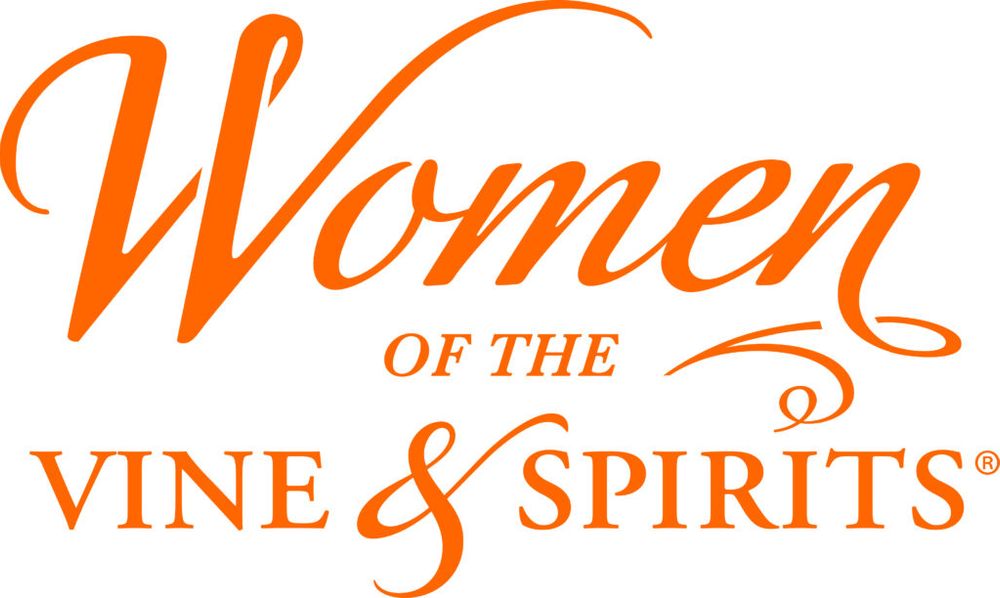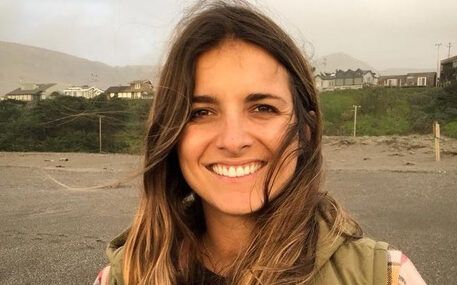Originally from Mendoza, Argentina, Florencia Gomez earned her winemaking degree from Universidad Tecnológica Nacional before working harvests across the world. She then worked as an export sales manager for Grupo Peñaflor before settling in London as a Master of Wine student and freelance brand strategist. The Women of the Vine & Spirits Foundation E. & J. Gallo Winery “Women Behind the Wine” Educational Fund Scholarships are open and you can apply here until June 30.
Tell us about your background before you got into the wine industry?
Having a chemistry-oriented education in high-school, I got into studying Winemaking at Universidad Tecnologica Nacional in Mendoza right after it.
How and why did you start a career in wine?
Since I was a kid, I’ve always been a curious individual with a wide range of interests. Not only did I develop a strong nerdy side and a big passion for science, but I am also very much a people-person with quite a creative side. Being from a place like Mendoza with such a strong cultural link to wine, jumping into the industry was intuitive and organic: I found in wine the chance to combine my love for science with communications, languages, people, and traveling. The dream-job.
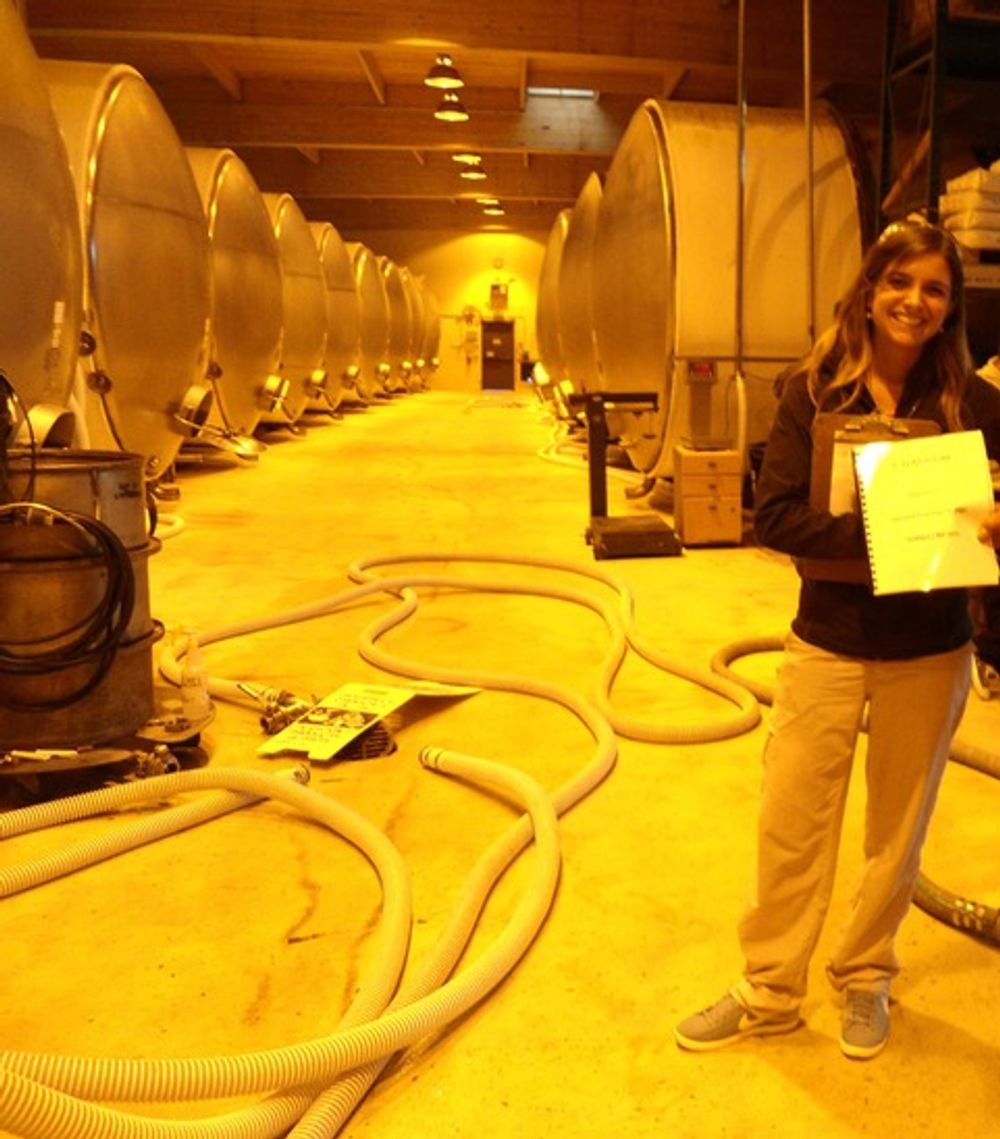
Florencia Gomez first harvest at Domain Chandon in the US
Why did you want to train to be a winemaker?
The approach of my university was very technical, and that was super interesting for me. Having the chance to have significant chemistry, biology, and industry training have helped develop my career with an insightful approach.
You have now worked for a number of major producers around the world – what are the challenges moving from one business to another as a winemaker?
Honestly, I can only think about the great perks of it, because I’ve had great experiences. I see large companies being sometimes overlooked by the wine industry professionals who only have eyes for fancy names. I mean, working in a small domain in Burgundy was a lovely experience, and I absolutely loved every bit of it, but in contrast, having the chance to work with the latest technology and closer with some of the brightest winemaking teams out there, has been a great opportunity to learn and to have a wider perspective.
What have been the highlights of your winemaking career?
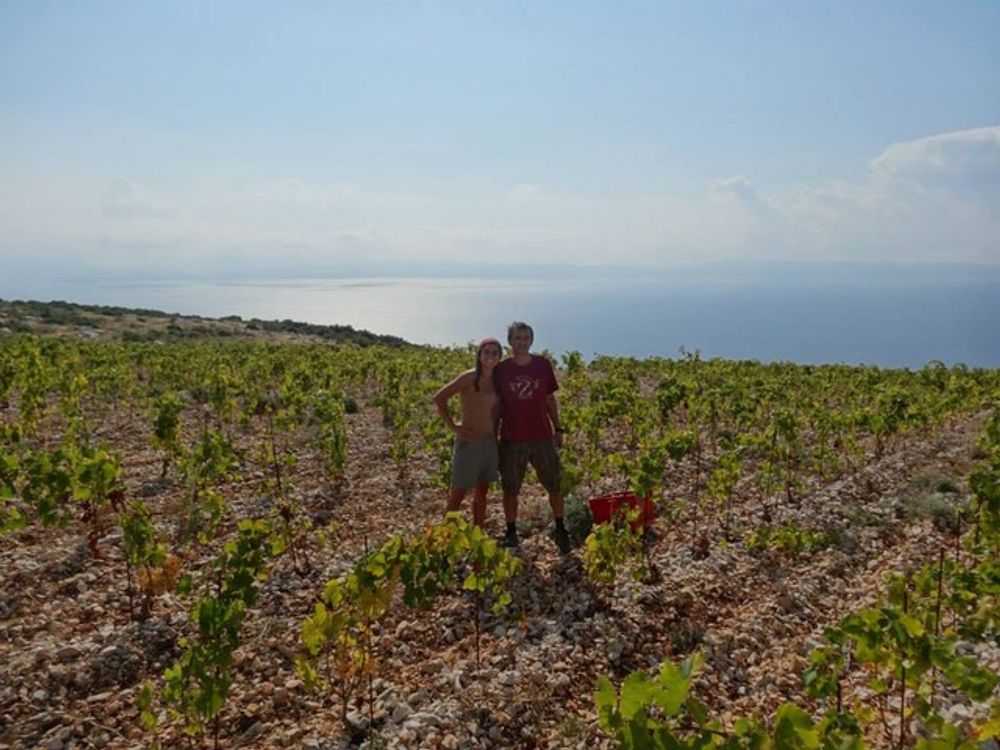
Working a harvest in Hvar in Crotia was a big moment for Florencia Gomez
The one I hold close to my heart was making wine in Croatia, on my great grandparent’s island. They had left for Argentina by the beginning of 1900 when phylloxera hit Hvar, and I was the first person in my family to come back after 110 years to make what I love the most: it was a really transforming experience.
What have been the biggest differences in terms of making wine in different countries – in terms of using your winemaking skills in different terroirs/ climates?
Even though the Old and New World distinction is blurring down more and more, I think that the main differences lie between a classic approach to winemaking versus a more contemporary take. Modern winemaking is more open to innovation, trends, and technology, being more explorative and creative, in my opinion. Classic winemaking requires specific knowledge and a very precise understanding of the regional style, relying on appreciation and deep respect for traditions.
You then moved into a corporate role as an export manager at Penaflor. Why did you make that switch? What were the challenges and differences in that role, and what did you did find most rewarding?
I was very lucky to start my path in winemaking close to people as Santiago Achaval and Roberto Cipresso, realising very early that making wine is just a portion of the job. Also, developing communication skills, creating meaningful relationships, and keeping a smart approach to business are as important, and I was determined to train those skills.
After working several harvests abroad, I got selected for a “Young Professionals” program offered by the Grupo Penaflor, which allowed me to transition directly into exports. The biggest challenge I found was definitely learning about a whole new world: budgets, shares, margins, market analysis, marketing plans, and portfolio management, which were all novelty for me. The best part of that exports job was being part of a fantastic and dynamic team working in markets worldwide, which gave me a global understanding of the actual drivers and trends. Also, having the chance to travel 4-5 times a year to the market to work closely with my clients to develop the business was a very enriching experience.
You also won the scholarship last year with Women of the Vine & Spirit – what did that allow you to do?
The scholarship arrived at the right moment to allow me to keep doing the MW. By the beginning of March, I just moved to London, seeking to have more access to wines and train for the exam’s practical side, but as we arrived here, Covid-19 hit. With the help of the scholarship, I had the support I needed to be able to afford the training and wines. Otherwise, focusing on my business and staying in London during Covid wouldn’t be possible, and I am grateful beyond words for it.
What advice would you give other women looking to apply for the scholarship this year?
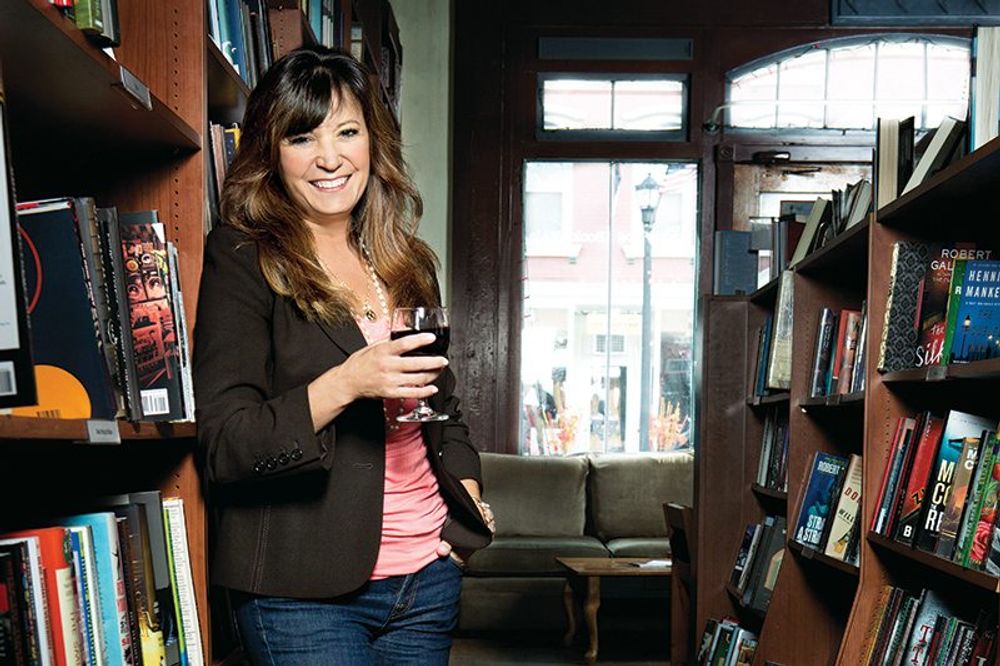
Deborah Brenner, founder and CEO of Women of the Vine & Spirits whose mission is to empower and equip women to further their careers in the drinks industry
Go for it. We are very fortunate to be part of this generation of women working really hard to create supportive spaces to help us thrive, and Women of the Wine and Spirits are doing a fantastic job. Take the opportunity. Deborah Brenner (the founder and chief executive) and all her team have been a great support, and they also have to make sure to build a strong female community with all other scholarship recipients. It is a unique opportunity not to be missed out.
How have you found being a woman working in the wine industry through your career?
I deeply believe that not acknowledging that there is still great gender inequality in the wine industry is a terrible mistake we can’t afford any more. We have indeed grown so much in the past decades. Still, unfortunately, in 2021, sexual harassment, salary gaps, unequal opportunities, lack of understanding of motherhood, stereotypes, and micro-aggressions are happening in front of our eyes. And it is our job as part of this generation to tackle them together.
The great news is that we are already talking about it, and slowly women and allies are more open to have these difficult conversations. We are building communities of strong females supporting us and working side-by-side to make a more inclusive and diverse industry, and that’s a big step.
Did you face particular challenges, and how did you overcome them?
Absolutely. For the most part, I’ve had great opportunities and have crossed paths with great people. Still, I’ve also come across very tricky people: I’ve had to deal with inappropriate clients, prove myself just for being a female on multiple occasions, and being directly discriminated against for being Latin. I have overcome them by talking a lot about it with my partner, family, friends, and colleagues and reaching wine people I admire for advice and support. Acknowledgment and dialogue are key; we need to make these issues visible and lose the fear of having uncomfortable talks if we want to build a better reality for the next generation.
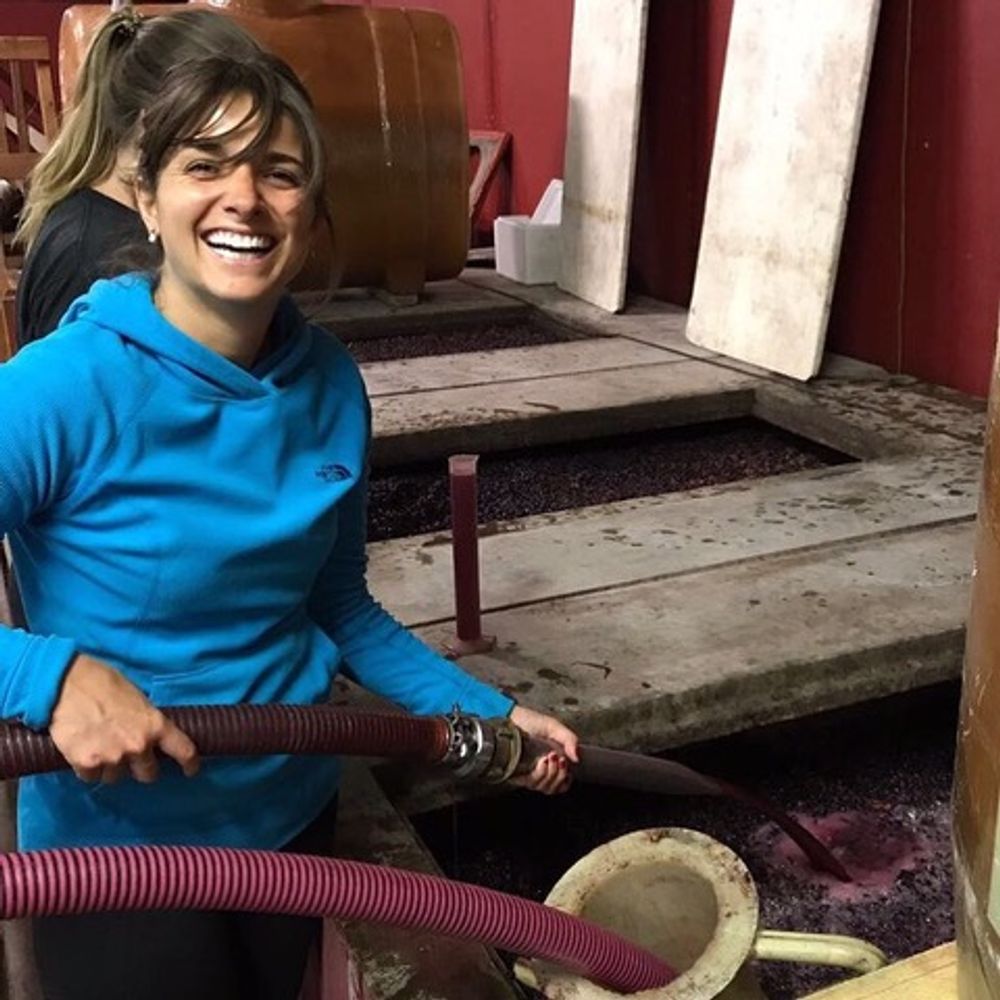
All smiles working on a harvest in Burgundy in 2017
What would you like to see the industry as a whole do more to tackle and promote diversity and inclusion?
I think we have started to do the hardest bit that is acknowledging how closed the industry was. Social issues in the vineyards, lack of inclusivity and diversity of sex, race, and colour, discriminatory marketing, lack of environmental commitment are just some of the different issues that we need to address. Transparency and honest, strong values will be definitely key, as consumers will end up penalizing and leaving behind those brands that underestimate them.
How do platforms and initiatives like Women of the Vine and International Women’s Day potentially help?
In general terms, by creating spaces for discussion and by making the issues visible. On a deeper level, supporting the next generation of wine women with scholarships, networking, and mentoring, they are doing a great job at empowering women.
Do you see yourself with your experiences playing a leadership and mentoring role as a woman in the sector?
I would love to think so. Nowadays, I am part of the Batonnage Forum Mentorship Program, and we have started the first level of it with 17 talented, passionate, and eager-to-learn women. I am truly excited about being part of all this, and I am taking the task with a lot of responsibility and commitment, seeking to learn and grow along the path.
The essay I wrote for E&J Gallo and WoVS was about leadership and inclusion and I meant every word of it: “Complex and multi-dimensional business beg for methodologies and mechanisms that allow identifying, value and question, discrimination, inequality, and exclusion of minorities. Perspective coming from inclusive leadership can only grow into sustainable strategies that set the new direction for our industry in social matters and environmentally.”
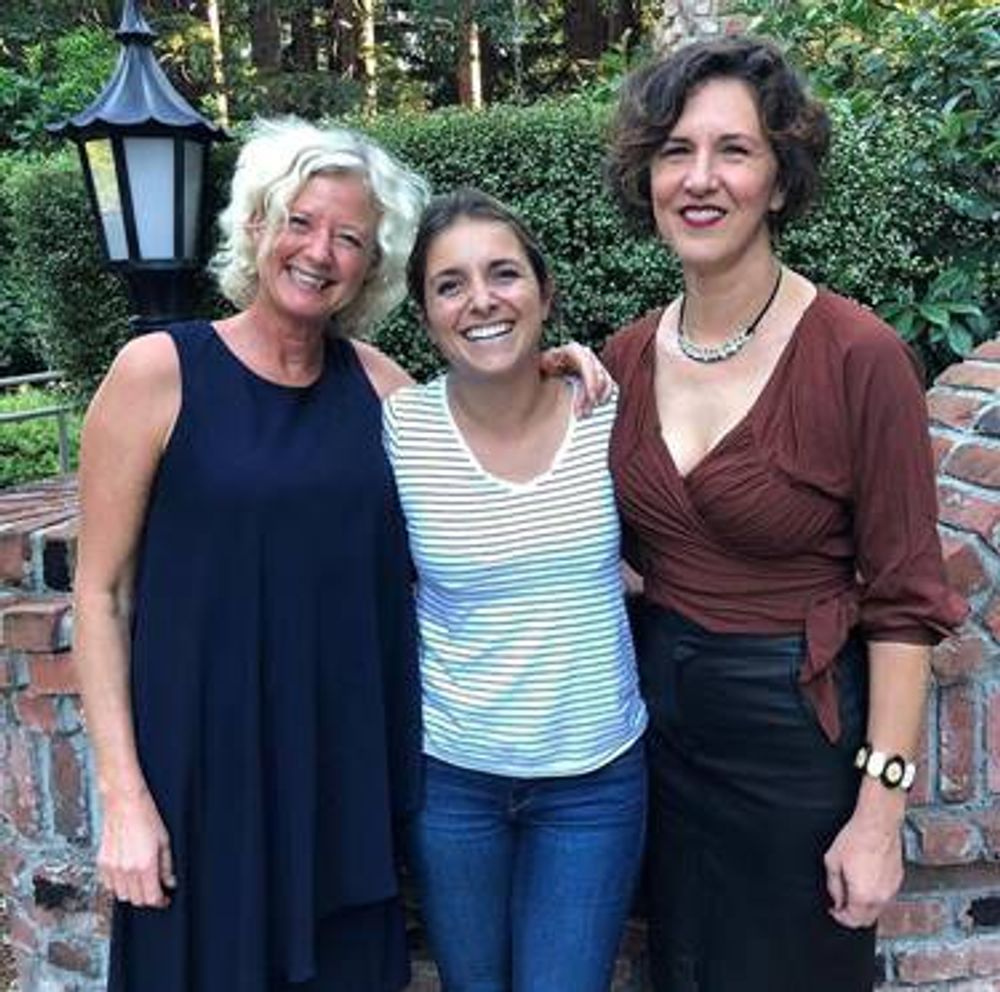
Florencia Gomez with two women she respects in the industry: Madeleine Streweth MW and Elaine Chukan Brown
You are now in London doing your MW studies – how is that going, and have your studies been hit by Covid?
While the exam was cancelled last year, and most wine events didn’t happen, other new opportunities have opened online, and that has been a great backup. A wide range of online classes are now available, and at the same time that mentors and students are getting more creative on ways to facilitate online tastings. We have managed to come up with a backup plan, but a certain sense of going back to normal will be a great relief to most of us.
Tell us about the consultancy business you are running as well. What sort of businesses and projects are you working on?
Because of all the digital spin accelerated by Covid, I have seen big trends shaping my business.
On the one hand, my clients are wine shops, wineries, and wine clubs looking to present a fresh and fun approach to Millennial and Gen Z wine consumers. A big part of my job is helping them translate their brand into contemporary digital codes by creating engaging content that makes wine easy and approachable for the younger crowds.
On the other hand, there is an increasing demand for sustainability, environmentally conscious practices, and “everything natural”, meaning biodynamic, organic, low intervention, etc. Also, alternative packaging is becoming a thing: new projects seeking lighter bottles or wine in a can.
In general, there is a hopeful and refreshing air seeking innovation, creativity, and inclusion, and I am really excited to see what the post-Covid era brings us.
- To find out more about Women of the Vine & Spirit and the work it does and the scholarships and foundations it runs click here.
- You can apply for a scholarship as part of the Women of the Vine & Spirits Foundation E. & J. Gallo Winery “Women Behind the Wine” Educational Fund Scholarships here with applications open until June 30. More information here.
